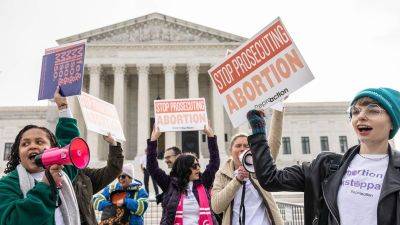Here’s What Is at Stake in the Supreme Court’s Abortion Pill Case
The main dispute before the Supreme Court centers on whether changes the F.D.A. made in 2016 and 2021, which significantly broadened access to mifepristone, should remain in effect.
Mifepristone, the first pill taken in a two-drug regimen for medication abortion, is currently used in nearly two-thirds of all abortions in the United States. More than five million women in the United States have used mifepristone to terminate their pregnancies, and dozens of other countries have approved the drug for use.
Before those regulation changes, mifepristone had to be prescribed and dispensed only by a specially certified doctor and picked up in person by the patient, who would have to visit the doctor three times during the medication abortion process.
Reinstating the pre-2016 rules would effectively prevent patients from using telemedicine to get a prescription and from receiving mifepristone by mail — the way many patients now get access to medication abortion, including patients who live in states with abortion bans. The pre-2016 rules would also prevent other types of certified providers — nurse practitioners, nurse midwives and physician assistants — from prescribing mifepristone, so patients would be able to obtain the pill only from doctors and might have to travel significant distances to do so.
In 2016, the F.D.A. also extended the time frame for mifepristone use during pregnancy, authorizing it until 10 weeks instead of seven weeks.
The decision by the appeals court would technically reinstate that seven-week limit. But it would have less practical impact because physicians in most states can legally use medical discretion to prescribe mifepristone until 12 weeks into pregnancy, the time frame recommended by the World Health







